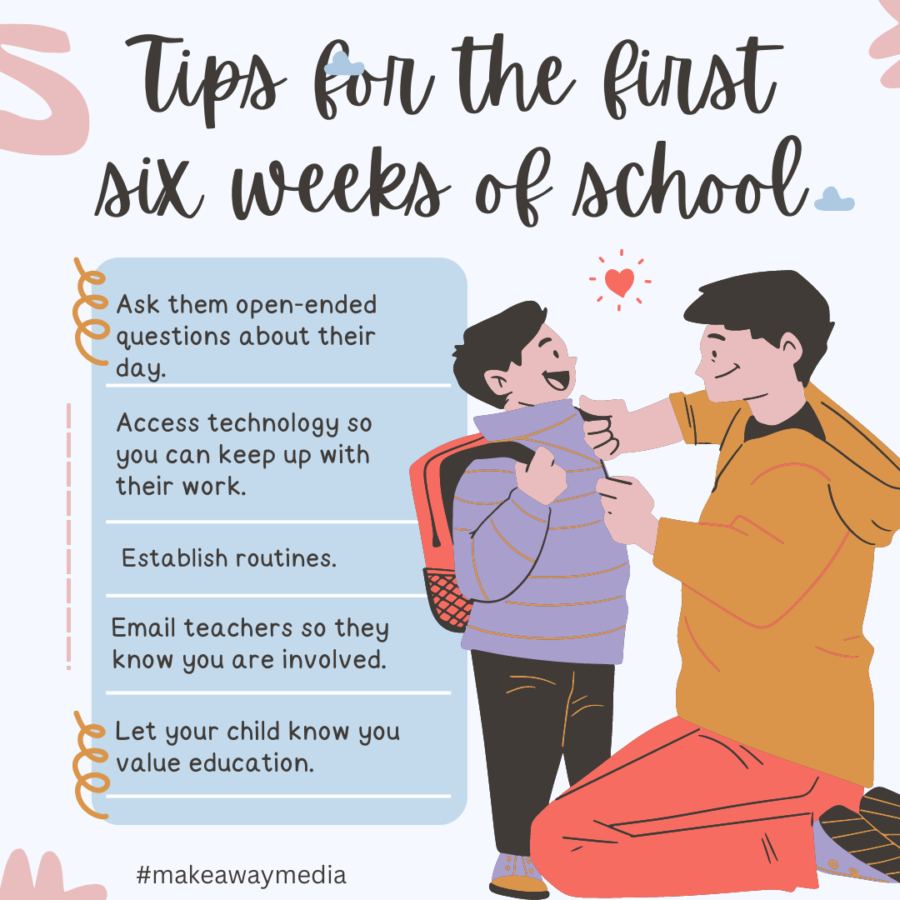As summer break comes to an end and the school year starts, it’s important for parents to prepare their child for a back to school transition that is as easy as possible. The first six weeks of the school year are a big deal for school-aged children. There is a lot more to it than just new backpacks and school supplies. During those first few months, they will establish new routines together, form first impressions, and set the tone for the months ahead. The back to school transition often impacts children’s mental health, requiring extra empathy and patience from parents. Here are 8 tips to help you to prep for a smooth back to school transition:
1. Create New Routines Toward the End of Summer
It’s likely that during summer vacation there was a bit of a break from your child’s typical routine during the school year. If possible, it’s best to get your child started on their new routine about two weeks before school begins. This means earlier bedtimes, less screen time, and sticking to a daily schedule. Even though it’s a short time of implementing new habits, it will help you prepare as a parent and make it a little easier for your child to transition back to school.
Once the year begins, you’ll want to create rules and routines around homework time, meal times and continue to implement your routines around screen time and good sleep.
2. Make Sure They Have School Supplies
This may seem like an obvious tip, but having the supplies kids need to learn can play a huge role in your child’s back to school experience. Starting the first day on the right foot, gives them the confidence to show up and be fully immersed in learning.
For some families, buying supplies before the first day can cause stress. If you don’t have the means to purchase school supplies, try looking for a back to school drive in your area. That’s a great place where you can find supplies for free.
3. Check-in Regularly During the School Year
When school begins, check in on a daily basis with your child to get a sense of what their experiences are. This way, if they are facing emotional challenges, anxiety or stress, you can kick your empathic parenting into gear and provide understanding, compassion, and a guiding light as they continue to move through the year.
Being extra present during these first six weeks of school can have a big impact on your child’s well-being. Simple check-ins about how their school day went go a long way. It’s also a great opportunity to help them manage negative emotions they might have around things happening at school, whether it be school work, teachers, or relationships with their families or their peers. Working through these feelings and emotions early on helps them establish healthy emotional intelligence and regulation.
4. Engage in Deeper Conversations at the End of Each School Day
Instead of asking “How was school?”—which often gets you a one-word response like “fine”—try asking open-ended questions that encourage detailed answers.
This approach helps you understand their daily experiences and emotional well-being. It’s also important for your child’s self-esteem that you take an empathic parenting approach to their feelings and experiences. Knowing you care and will listen to what’s on their mind strengthens your relationship. Remember, there’s no such thing as a perfect parent—just do your best!
5. Ask These Questions During the First 6 Weeks (And Beyond!)
If you aren’t sure what kind of open-ended questions to ask, try these:
- Who is your favorite teacher so far? Why do you like this teacher?
- Who is your least favorite teacher so far? What don’t you like about this class?
- Which class is easy for you? Why is it easy?
- Which class is challenging for you? What makes it a challenge?
- Who do you sit with at lunch?
- What did you learn today that was new or interesting?
- Who got on your nerves today at school?
- Who made you laugh today at school?
- What are you looking forward to the most?
Asking these questions and being an active listener, by making eye contact and repeating back what you hear, will help you create a supportive family environment. This will help your child feel heard, supported and understood.
6. Pay Close Attention to Their Behavior
It’s important to pay close attention to your child’s behavior at the start of the new school year. Often, children don’t have the words to explain how they are feeling. However, you can recognize how the school year is impacting them by observing their non-verbal cues.
If your child feels excited about going to school and looks forward to telling you about their day, they are probably coping well with the change. If they are not excited to go to school and seem a bit closed off when talking about their day, you may want to spend a little extra time together to see if you can get your child to open up about what’s going on.
Either way, you want to continue to foster empathy in your relationship and make space for your child’s emotions. School can be a tough place for many kids. Knowing they have your support will always make the transition easier.
7. Utilize School Portals
Most schools now offer online portals where parents can monitor their child’s grades, updates, and upcoming assignments. This tool is great for monitoring your child’s school days and academic responsibilities.
Tailor Your Notifications
Many portals allow you to customize notifications for many children. You can set alerts for every week, every grade update or only if your child scores below a certain threshold. Knowing that you are keeping track can incentivize your child to stay on top of their work and seek help when needed.
Leverage Google Classroom
Google Classroom is widely used by teachers and students and offers a feature to send parents a weekly summary of their child’s assignments and activities. Typically sent on Fridays, these summaries provide insights into what your child is studying, allowing for more meaningful conversations. For example, you might say, “I saw on Google Classroom that you are studying metaphysics in philosophy class. What is metaphysics, exactly?”
8. Build a Support Network
Remember, you’re not alone in helping your kids transition back to school. Engage with other parents so you can share experiences and advice. Often, the issues your kid faces are issues other families have already overcome. Being connected to a community of other parents is a valuable resource for problem-solving and support.
Questions to Ask Other Parents
- How do you manage to keep track of your child’s school assignments?
- What strategies have worked for you to motivate your child to do well in school?
- Have you found any effective ways to communicate with teachers?
Continue to Stay Involved
The first six weeks of school are foundational for your child’s academic year. By practicing empathetic parenting, regularly checking in, utilizing available tools, engaging in meaningful conversations, and building a support network, you can help your child build resilience, adjust, and thrive.
School is about more than academic performance. It is a place where they will learn about emotions, relationships and problem-solving.
When you choose to take an empathetic parenting approach, you are modeling the skills your kids need to grow into empathetic with adults with the confidence to overcome change and new situations.
If you’d like even more free resources to equip your kids with tools they need to become great humans who have the confidence to chase after their dreams, you need the K Club!
 The K Club is a free, online membership. You’ll get monthly guides that help teach important social-emotional skills, like empathy, developing a growth mindset, and dealing with bullies. The guides are full of fun printable activities that you and your kids can do together.
The K Club is a free, online membership. You’ll get monthly guides that help teach important social-emotional skills, like empathy, developing a growth mindset, and dealing with bullies. The guides are full of fun printable activities that you and your kids can do together.
If you want screen-free fun sent to your inbox each month, join the K Club. It will equip your kids with the skills they need to thrive.


